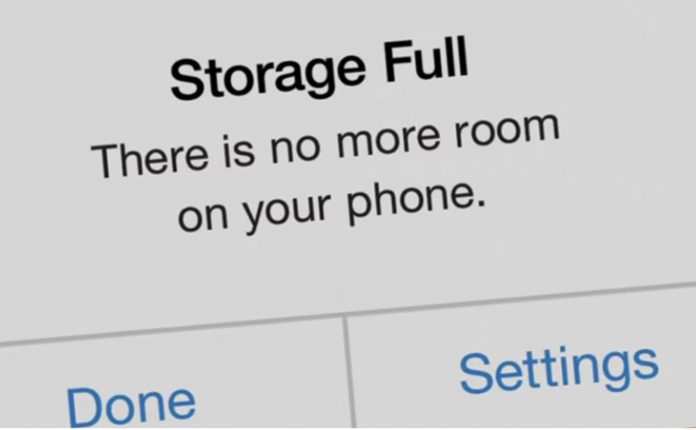It is all too easy to run out of storage on your phone these days. As mobile games get more complex and impressive, they take up a lot more space, so you might need to free some up.
Android and iPhone devices both suffer from this issue – even if you are able to extend the storage capabilities through the use of a microSD slot – but for this guide, we will be focusing on devices that use Google’s software.
This is what you are likely to be wasting your phone storage on – and what you can do about it.
Use Smart Storage to clear away files you do not need
Unless you regularly take time out to maintain the storage on your phone, it is likely to get cluttered up with a lot of things you had forgotten about altogether.
Luckily, Google has seen this issue coming so has included a feature called Smart Storage on Android devices. You can find it through the settings menu, then select ‘free up space’.
Here, users will be able to get rid of any apps that they no longer open, as well as deleting photos and videos that you no longer need on your phone. Make sure you have backed them up by uploading them to the cloud as you never know when you might want to look at them again.
Clearing the cache in apps is a quick, easy, and harmless way to gain some storage on your phone. Android users can even change a setting that means files like photos and videos will be automatically deleted from the phone – as long as they have been backed up in the cloud.
Check your apps on a regular basis
We are all guilty of downloading lots of apps on to our phones and then never using them. It might not be the most exciting admin job in the world but take some time to go through your apps every month or so and audit which of them you actually open.
Doing this might remind you of an app you used to love but forgot about, but it is more likely you will find plenty of software that you can get rid of by uninstalling.
The Play Store even has a feature that can help you to identify which apps you no longer need. Head to the ‘my apps and games’ section, then tap ‘installed’ and sort apps by last used. Scroll to the bottom and you will see the apps on your phone that was opened the longest period of time ago. Then, you can decide whether you want to keep them or delete them.
Some apps take up a surprisingly large amount of space on your phone while deleting others will not make a lot of difference.
For example, did you know casinos whose games are built with HTML5 take up no storage?
This means that if you like to gamble online through a mobile device, you do not generally need to worry about casino apps taking up a lot of much-needed space on your phone.
- Clear out your downloads
One area where there tends to be a lot of wastage in your phone storage is in your downloads. Your phone will keep any files you download automatically unless you manually delete them.
This means that everything from bus timetables to restaurant menus will still be clogging up your storage, even if it is many months since you last needed to look at them.
Most people will be able to get rid of everything in their downloads folder without it being a problem, but you can always have a quick scan before tapping the bin button.
- Manage your music and podcasts carefully
A lot of your phone storage is likely to be taken up with playlists you have downloaded on to the device, whether these are music, podcasts or a mix of the two.
It is handy to have all these saved to your device, but once you have listened to a podcast, do you really need to keep it on your phone? If you do not think you are going to listen to it again, be ruthless and delete it to free up some more space on the device.
Android users who listen to podcasts through Play Music will find episodes download automatically, so make sure you check regularly to see which you actually listen to.
- Make the most of Google Drive
Most of our tips and tricks on relieving wastage on your phone involve deleting items, but you can also move them around.
If your device has a microSD card you can move various files on to it to clear some space on the device itself. But perhaps the best way to manage storage is by using Google Drive.
Google provides Android device users with a massive amount of free storage, so you really ought to take advantage. Anything you have downloaded that you might want to use again can be uploaded to your Google Drive instead of being deleted.
Just check your Google Drive regularly too – and clear out any unwanted files from there.







